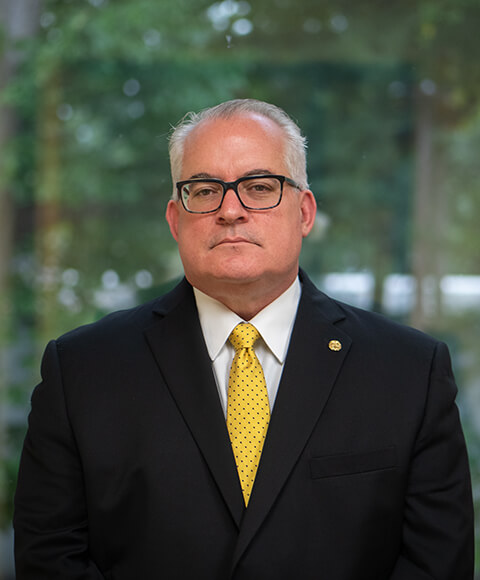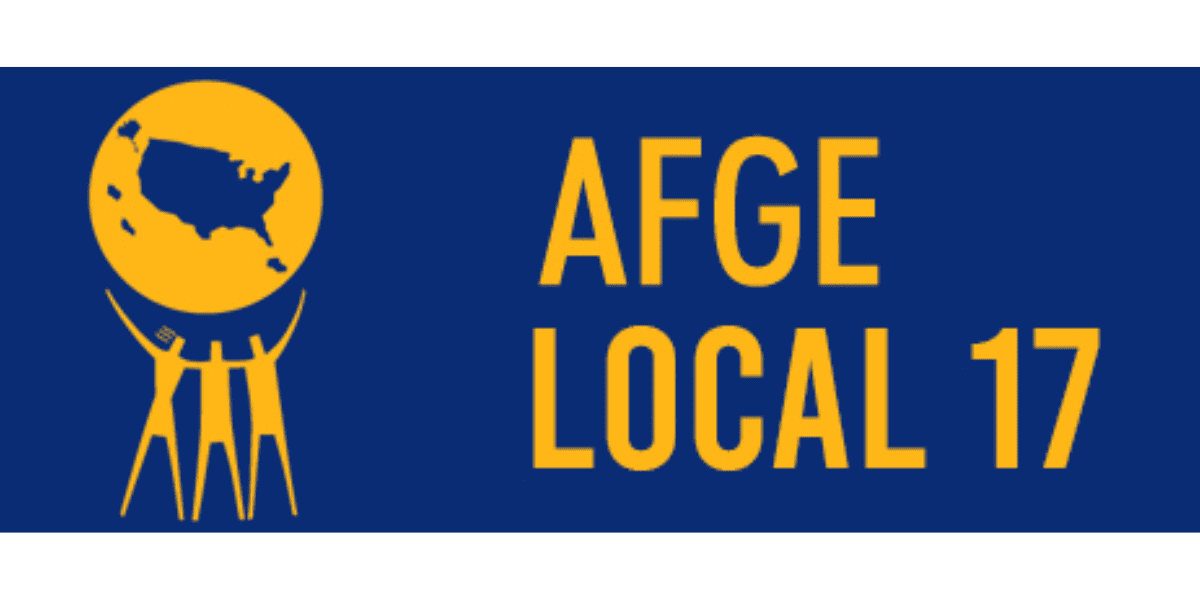As Seen On:

In early February, Republicans brought an FBI veteran to Capitol Hill whom they hoped would expose a “deep state conspiracy” among Democrats and their accomplices in the intelligence community. The GOP witness was part of a network of “whistleblowers” — funneled to congressional Republicans’ new Weaponization of Government panel by allies of Donald Trump — to reveal covert attacks on the former president and broad, anti-conservative discrimination.
But before the interview was over, it was the GOP witness who was failing to answer difficult questions — and Democratic committee staff doing the asking.
In the interview, the witness, former FBI supervisory intelligence analyst George Hill, had admitted he had little or no firsthand knowledge of alleged “deep state” scandals. Instead, he brought baggage of his own: a history of inflammatory commentary on social media. Democratic staff had found a tweet in which Hill claimed former House Speaker Nancy Pelosi (D-Calif.) had “blood on her hands.” In a since-deleted tweet found by Rolling Stone, Hill wrote “Cancer! GO FASTER!” in response to a tweet from Rep. Lauren Boebert claiming that President Biden had been diagnosed with cancer.
According to portions of transcripts reviewed by Rolling Stone and sources familiar with the exchange, Hill repeatedly declined to respond to the questions and cited his First Amendment rights. (He’d later go on a conservative talk show to accuse Democrats of trying to paint him as a “right-wing nut job” because they couldn’t handle his message.) As the exchange went on, Hill’s attorney, Jason Foster, begged the Democratic counsel to stop asking about his client’s tweets.
Rep. Jim Jordan (R-Ohio), the chair of the new House Judiciary’s “weaponization” subcommittee, opened its first hearing vowing that he’d heard from “dozens and dozens” of whistleblowers about “the political nature at the Justice Department.” Indeed, powerful players from Trump’s orbit have invested in recruiting intelligence community veterans, hoping to produce bombshell revelations and must-see TV to rival the results of the Jan. 6 committee.
But so far, Republicans have brought only three of those whistleblowers to Capitol Hill for questioning, and have not scheduled any additional interviews after completing the most recent in mid-February. In the interviews conducted to date, witnesses have offered contradictory responses, maintained fringe and violent online presences that undermine their credibility, and failed to demonstrate first-hand knowledge of alleged FBI wrongdoing.
The results have left Democrats gleeful and even some Republicans deeply unimpressed. A “dumpster fire,” is how one Democrat with knowledge of the at-times combative interactions terms the proceedings. “Clearly there is room to grow and improve before [more] public hearings,” a Republican familiar with the process tells Rolling Stone. But the work so far, the Republican says, has been “very much amateur hour,” adding that airing this “stuff on live television would make us look like morons.” (Sources spoke on the condition of anonymity to speak candidly about the sensitive matters.)
“It is beyond disappointing, but sadly not surprising, that Democrats would leak cherry-picked excerpts of testimony to attack the brave whistleblowers who risked their careers to speak out on abuses at the Justice Department and FBI,” a GOP House Judiciary spokesperson tells Rolling Stone.
But if the whistleblowers aren’t able to produce what Jordan has promised, it will be a serious blow to Republicans’ plan to use control of the House to refocus the public away from Trump’s proximity to an insurrection and onto an alleged anti-conservative conspiracy.
The whistleblower pipeline comes from a collaboration between Jordan, other MAGA lawmakers, and top officials in Trump’s orbit. Whistleblowers have received payments and legal counsel through this loose network; one whistleblower, Stephen Friend — a former FBI agent who brought concerns about the agency’s questioning of Jan. 6 protesters to Republicans — even received a job.
The three whistleblowers who have been interviewed by committee staff have done so with the assistance of aides to former President Donald Trump and the conspiracy-curious Sen. Chuck Grassley (R-Iowa), a loose network that provides money and legal assistance to the GOP witnesses. Hill and Friend are both represented by Foster, a former GOP chief counsel for the Senate Judiciary Committee. From his perch under then-chair Grassley, Foster masterminded an aggressive assault against the FBI in the midst of special counsel Robert Mueller’s investigation into Trump. Foster has since founded Empower Oversight, a self-described nonpartisan government and corporate accountability organization. Friend said in an interview with Russia Today that Jordan’s office had “attached” him to Foster. Dan Meyer, listed as a member of Empower Oversight’s Whistleblower Advisory Panel, is also an attorney for Friend.
Regarding Hill’s combative interview, Foster wrote: “Foster wrote in an email to Rolling Stone that “It’s irresponsible and a violation of the assurances witnesses were given for Committee staff to leak excerpts of closed door interviews to attack whistleblowers rather than actually doing their job to investigate their allegations regarding the FBI.”
Garret O’Boyle, a third FBI whistleblower who spoke with committee staff, is represented by Jesse Binnall, former Trump campaign attorney who worked to overturn the 2020 presidential election in Nevada; Binnall now acts as one of Trump’s go-to attorneys for Jan. 6-related litigation. O’Boyle told staff he’d been connected to Binnall through Kash Patel, a former Trump administration official and one of Trump’s most vocal defenders in his post presidency. Both O’Boyle and Friend said they received payments from Patel through Fight with Kash, a nonprofit organization Patel established to provide “veteran and law enforcement financial support,” according to Patel’s website. Friend received $5,000, he told congressional investigators; O’Boyle declined to share the amount.
Friend said Patel also helped connect him with the Center for Renewing America, the Trump-aligned think tank led by former Trump budget director Russ Vought, where Friend is now employed as a fellow. (Patel, too, is a CRA fellow, according to the organization’s website.) His security clearance was suspended by the FBI.
In a statement sent to Rolling Stone, Patel wrote that his nonprofit, The Kash Foundation, had made assisting FBI whistleblowers one of its “main areas of focus” and “will continue to assist veterans, law enforcement, education, and other matters outlined in our Mission First approach.”
But for all the effort spent to find whistleblowers, they so far haven’t delivered.
Friend had been suspended from the FBI since the fall, when he refused to participate in investigations related to the Jan. 6 insurrection, according to a declaration he shared with GOP lawmakers. The 12-year agency veteran described the FBI’s work on the matter as “marred by politicization and ambition” — “this is their 9/11,” he said on an appearance of Roger Stone’s Rumble show in January.
In a statement, Friend’s attorney, Meyer, claimed that his client blew the whistle on the Bureau’s alleged failures to follow its own rules and “got what most FBI whistleblowers get: retaliation, isolation, and financial pressure designed to push Special Agents out of law enforcement with no formal wrongdoing accusation, no due process, and lots of harmful error.” He added, “This is not really about January 6th, it is about the broken system of FBI oversight.”
Friend first made contact with staffers for Grassley, Johnson, and Jordan shortly after he issued his declaration; his contact with Jordan helped inform the Judiciary chairman’s 1000-page FBI whistleblower report from November 2022. In his interviews for the weaponization committee, Friend has claimed the FBI has been manipulating its case-file management system to falsely inflate threats of domestic terrorism, but prosecutions tell a different story. Studies by agencies like the Government Accountability Office and the University of Syracuse have shown sharp rises not just in investigations of terrorism-related cases but prosecutions of them as well.
Hill is a now-retired FBI intelligence analyst who had been based in the agency’s Boston office at the time of the Jan. 6 attack. He, like Friend, has made several media appearances claiming Bank of America had unlawfully provided the FBI with a list that cross-referenced company data on gun and travel purchases to identify Americans who made purchases in Washington, D.C., on Jan. 6 and owned firearms. Hill chose to retire in 2022 after a 30-year career in the FBI with an active security clearance.
But under questioning, Hill said he’d never actually seen the list — only the electronic communication used to bring it into the FBI’s case management system — and had learned about it only through secondhand chatter from colleagues, according to the interview transcript reviewed by Rolling Stone. Foster, Hill’s own attorney, clarified that Hill, given his role, wouldn’t even have been aware of such a request — a response that further undermined Hill’s authority on the subject. In his media appearances, Hill has downplayed the Democrats’ line of questioning. “They were more interested in my social media profile and had very little in the way of substantive questions,” Hill told conservative commentator Howie Carr last month.
O’Boyle had been an agent based in the Wichita office and was en route to a new assignment in Virginia when the FBI suspended him in 2022. He’d first spoken to congressional Republicans in November 2021 and had more than 20 communications with Jordan’s staff over the last 15 months. “I believe, and likely cannot be swayed from the position, that the FBI retaliated against me for being a whistleblower,” he wrote in a now-private Substack newsletter.
O’Boyle also repeated his belief that he’d been suspended by the FBI for his contact with Congress. When Democratic counsel asked O’Boyle to share his suspension notice to prove that, however, O’Boyle refused. He also refused to share his pay suspension notice, which would also have likely listed a reason, as well as the estimated 50 documents he had previously shared with congressional Republicans. In a statement to Rolling Stone, Binnall wrote: “My client has served his country admirably, in the military, the FBI, and now as a whistleblower. It is an honor to represent him. The confidential information he provided to Congress was done so with discretion, as provided for by law. He did not release that information to Democrats on the committee because he knew that they would leak it to the media; a concern that has proven justified. He is a whistleblower on extremely serious government misconduct and unlawful retaliation. He provided that information to people who would take it seriously.”
After Jordan and his cohorts concluded their first “Weaponization” hearing last month, several figures in the right-wing media elite — who are staunchly loyal to Trump and the GOP and already primed to just run with the party’s claims and supposed bombshells — reacted with head scratches. “I’m sick of these hearings,” Jesse Watters, a Fox News host and a buddy of Trump’s, complained on-air after the inaugural House Weaponization of the Federal Government subcommittee hearing. “Make me feel better, guys. Tell me this is going somewhere. Can I throw someone in prison? Can someone go to jail? Can someone get fined?”
One well-known conservative media host tells Rolling Stone that after that hearing, this person reached out to their “contacts on the [panel]” to express their baffled disappointment with the offerings. This source says their criticism amounted to scolding the committee, and saying something akin to: “Come on, guys, you have to do fucking better than that!”





